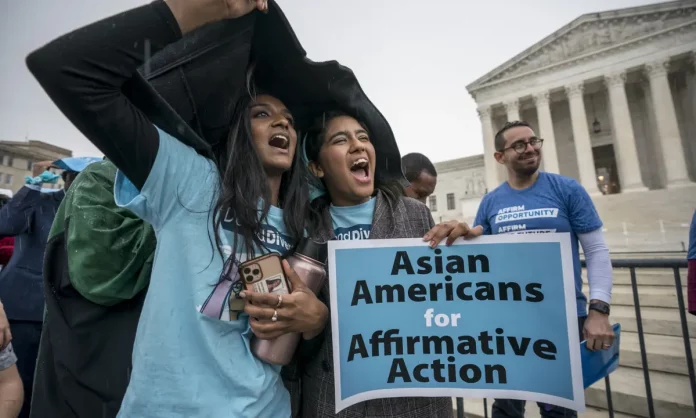Rep. Judy Chu, D-California and chair of the Congressional Asian Pacific American Caucus, joined several civil rights leaders here July 7 who expressed their disappointment at a recent
Supreme Court decision striking down affirmative action in the college admissions process at Harvard and the University of North Carolina. At the EMS briefing on July 7 Civil Rights Leaders Pledge to Continue Battle to Save Affirmative Action in College Admissions.
John C. Yang, chairman and executive director of the Asian American Center for the Advancement of Justice (AAJC), said that the decision of the Supreme Court does not represent the final result.
The struggle is not over yet, and now is a critical juncture. A majority of Asian Americans support affirmative action, as seen in the civil rights vote. Wrong ideas lead to racial division, and divisive ideas lead to people’s hatred of Asians during the epidemic; realizing that racial problems exist but refusing to solve them is the key. We must face the reality of inequality and cannot avoid it.
It is in the university’s own interest to increase diversity, which is critical to enhancing the student teaching experience. The United States is a diverse country. Many universities are more conservative and cautious when considering diversity in admissions. It is necessary for multi-ethnic alumni of each university to speak out bravely and exert their influence in different fields to ensure that the ruling will no longer hinder students’ opportunities.
Francisca Fajana, Director of Racial Justice Strategy at Latino Justice, said that ignoring racial differences is ignoring the reality of race and ignoring half a century of unequal opportunities for all ethnic groups.
Elite universities are a channel to higher power and status in society, and the Supreme Court’s decision has nothing to do with fairness of ability; they will not back down, will not let half a century of hard work go to waste, and support young people to enter elite universities. The legacy admissions system has been criticized many times. Not only that, standardized test scores or admissions based on AP courses are also unfair to a certain extent, because some courses or extracurricular activities are not offered by all schools or, require strong financial support. Universities need to take innovative ways to promote equity.
Vidya Sethuraman
India Post News Service







